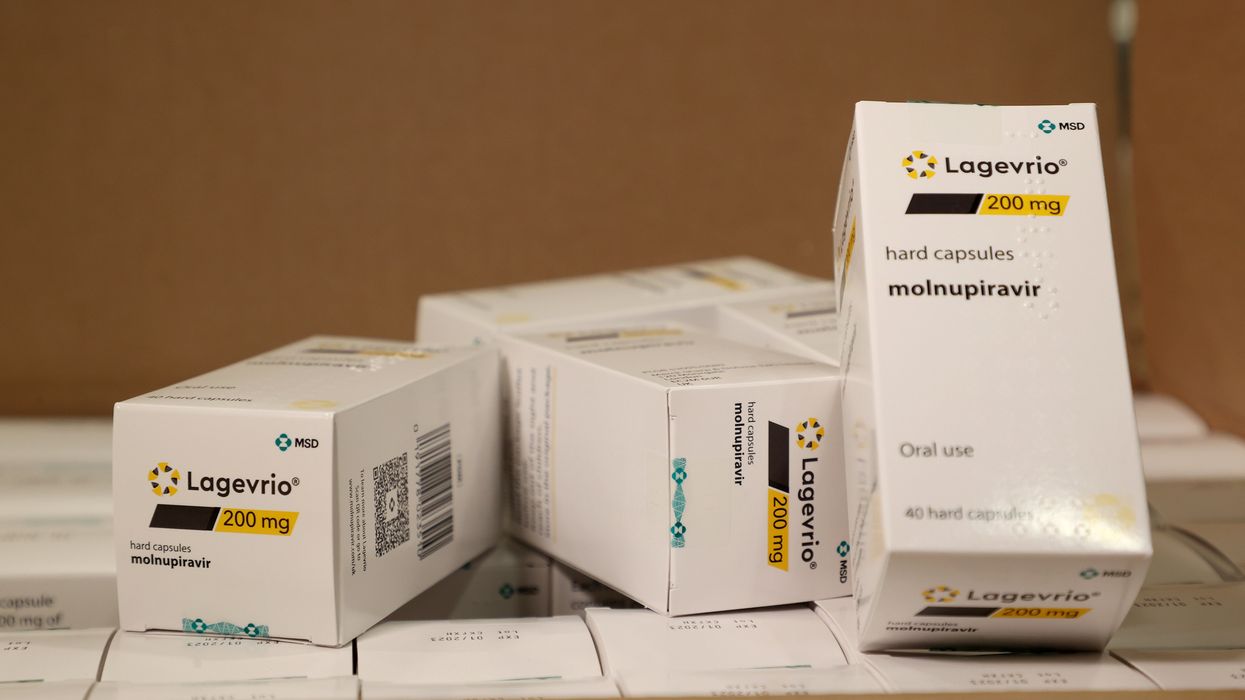
An antiviral drug used to treat Covid-19 patients may be causing the virus to mutate more than it might otherwise, according to scientists.
Molnupiravir is designed to make the virus mutate until it is ultimately destroyed, but there is also evidence that it can survive the treatment and cause new mutations that spread to others.
The drug, which is also sold under the Lagevrio brand name, is routinely prescribed by NHS doctors. It is also a recommended treatment for the virus on the World Health Organisation’s website.
There isn’t any evidence that molnupiravir has caused Covid to mutate into more dangerous variants.
But the new study claims the mutations have heightened the genetic diversity of the virus, providing more pathways for potential future variants.
The evolution of the Covid-19 virus was a key driver of lockdowns in 2020 and 2021. The emergence of the Alpha, Delta and Omicron variants all driving a spike in cases.
Dr Theo Sanderson, the lead author on the study and a postdoctoral researcher at the Francis Crick Institute in London, said: “People have some concerns about molnupiravir and to some sense this makes those more concrete.”
“We know these viruses can still be alive following a significant number of mutations and they can still be transmissible in some cases.”
The study is significant in drawing up risk assessments of molnupiravir and other drugs which are in development.
Its authors described searching through global databases that showed hallmark mutations in the Covid-19 virus after mulnupiravir became more widely used.
They found that some signature mutations were more prevalent in countries that used molnupiravir extensively, such as the UK, Australia, Japan and the US.
The mutations were also more common in cases of older patients, for whom the drug is most commonly prescribed.
The researchers then picked out viral samples in England that had the signature mutations thought to be caused by molnupiravir.
When they asked the UK Health Security Agency which patients had been treated with the drug, the number was “much higher than you’d expect by chance,” said Sanderson.
It isn’t clear what the study means for use of the drug yet, because at the moment there’s “nothing that’s transmitted very widely that’s due to molnupiravir”.
Most of the mutations caused by the drug would be expected to weaken it, rather than make it more dangerous.
And while it may cause fresh variants that evade immune systems, repeated trials have shown vaccinated patients recovering from Covid-19 faster with the drug than without.
Prof Chris Butler, a co-investigator on the trial, said it “may be very useful in speeding recovery among key workers, for example, during times of high pressure on services”.
“Molnupiravir may be very useful in certain contexts, but should definitely not be used as a ‘treat all’ approach.”
MSD, the manufacturer of molnupiravir, said: “The authors assume these mutations were associated with viral spread from molnupiravir-treated patients without documented evidence of that transmission.
“Instead, the authors rely on circumstantial associations between the region from which the sequence was identified and timeframe of sequence collection in countries where molnupiravir is available to draw their conclusions.”
Sign up to our free Indy100 weekly newsletter
Have your say in our news democracy. Click the upvote icon at the top of the page to help raise this article through the indy100 rankings.













